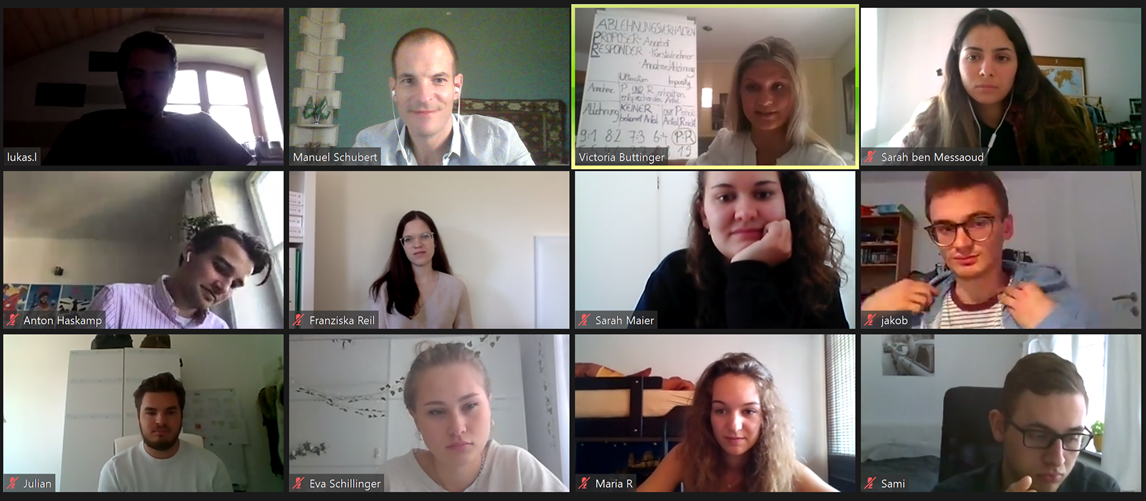Behavioral Economics and the Seven Deadly Sins (Part 1)

Kick-off for the 7th seminar on “Behavioral Economics and the Seven Deadly Sins” at Passau University, Germany. Super interactive webinar on selfishness, envy, retaliation and moral decay with lots of classic experiments. For those who are interested in the topics, below is the full syllabus of part 1. More to come soon.
- Hoffman, E., McCabe, K., and V. Smith (1996), Social Distance and Other-Regarding Behavior in Dictator Games, American Economic Review, Vol. 86, No. 3, pp. 653-660
- Bohnet, I., and B. Frey (1999), Social Distance and Other-Regarding Behavior in Dictator Games: Comment, American Economic Review, Vol. 89, No. 1, pp. 335-339
- Dana, J., Cain, D. M., and R. M. Dawes. (2006), What you don’t know won’t hurt me: Costly (but quiet) exit in dictator games, Organizational Behavior and Human Decision Processes, Vol. 100, pp. 193–201
- List, J. A. (2007), On the Interpretation of Giving in Dictator Games, Journal of Political Economy, Vol. 115, No. 3, pp. 482-493
- Sanfey, A. G., Rilling, J. K., Aronson, J. A., Nytsrom, L. E., and J. D. Cohen (2003), The Neural Basis of Economic Decision-Making in the Ultimatum Game, Science, Vol. 300, No. 5626, pp. 1755-1758
- Burnham, T. C. (2007), High-testosterone men reject low ultimatum game offers, R. Soc. B, Vol. 274, pp. 2327–2330.
- Yamagishi, T., Horita, Y., Takagishi, H., Shinada, M., Tanida, S., and K. S. Cook (2009), The private rejection of unfair offers and emotional commitment, Natl. Acad. Sci. USA, Vol. 109, No. 50, pp. 20364–20368
- Falk, A., Fehr, E., and U. Fischbacher (2003), On the Nature of Fair Behavior, Economic Inquiry, 41, No. 1, pp. 20-26
- Falk, A., and N. Szech (2013), Morals and Markets, Science, Vol. 340, pp. 707-711